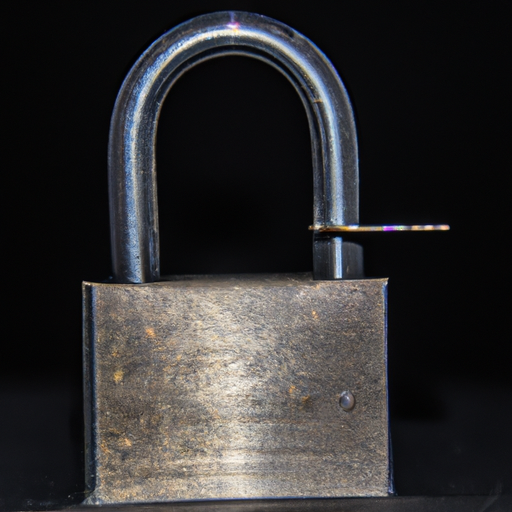In the world of business, confidentiality matters. Whether you’re a small start-up or a large corporation, safeguarding sensitive information is crucial to maintaining trust and protecting your valuable assets. This is where non-disclosure agreements (NDAs) come into play. These legal contracts ensure that confidential information remains confidential, prohibiting its disclosure to third parties. In this article, we will unpack the importance of NDAs, their key components, and how they can benefit your business. By the end, you’ll have a clear understanding of why confidentiality matters and how NDAs can provide the necessary protection. So, let’s dive in and unravel the intricacies of non-disclosure agreements.

What is a Non-Disclosure Agreement?
Definition
A Non-Disclosure Agreement (NDA), also known as a confidentiality agreement, is a legal contract between two parties that outlines the terms and conditions under which one party agrees to disclose confidential information to the other party while ensuring that the recipient keeps this information confidential.
Purpose
The primary purpose of a non-disclosure agreement is to protect sensitive information from being disclosed to unauthorized parties. By signing an NDA, the recipient acknowledges their legal obligation to maintain the confidentiality of the disclosed information and prevents them from using or sharing it without proper authorization.
Components
A non-disclosure agreement typically includes several key components. These include the names and contact information of the parties involved, the definition of confidential information, the scope of confidentiality, permitted disclosures, the term and termination of the agreement, and any other provisions specific to the needs of the parties.
Why Are Non-Disclosure Agreements Important?
Protecting Sensitive Information
One of the main reasons why non-disclosure agreements are important is because they protect sensitive information. In today’s business world, companies often possess valuable trade secrets, proprietary information, and intellectual property that, if disclosed to competitors or the public, could negatively impact their business. NDAs provide legal protection and ensure that this information remains confidential.
Maintaining Competitive Advantage
By using non-disclosure agreements, businesses can maintain their competitive advantage. By safeguarding their confidential information, businesses can prevent competitors from gaining access to valuable insights, technologies, or strategies that could be used against them. NDAs enable businesses to share information with trusted parties without the fear of it falling into the wrong hands.
Building Trust in Business Relationships
Non-disclosure agreements also play a crucial role in building trust in business relationships. When parties enter into a contractual relationship, especially when it involves the exchange of sensitive information, having an NDA in place demonstrates a commitment to protecting the interests of both parties. This commitment fosters trust and helps establish a solid foundation for future collaborations or partnerships.
Types of Non-Disclosure Agreements
Unilateral NDA
A unilateral NDA, also known as a one-way NDA, is a type of agreement where only one party discloses confidential information to the other party. In this scenario, the recipient is obligated to keep the disclosed information confidential but is not required to share any confidential information of their own. Unilateral NDAs are commonly used when a business wants to protect its trade secrets or proprietary information when dealing with contractors, consultants, or potential business partners.
Bilateral NDA
A bilateral NDA, also known as a mutual NDA, is a type of non-disclosure agreement where both parties agree to disclose confidential information to each other. This type of NDA is often used in situations where both parties will be sharing valuable information. Bilateral NDAs are commonly used in joint ventures, partnerships, or collaborations where multiple parties need protection for their confidential information.
Multilateral NDA
A multilateral NDA, also referred to as a multilateral non-disclosure agreement or an omnibus agreement, is a type of agreement that involves more than two parties. This type of NDA is used when multiple parties need to share confidential information with each other while ensuring that all parties keep the information confidential. Multilateral NDAs are often seen in complex business transactions, consortium agreements, or industry-wide collaborations.
Key Provisions in a Non-Disclosure Agreement
Definition of Confidential Information
One of the key provisions in an NDA is the definition of confidential information. This provision clearly identifies what information is considered confidential and should be protected from disclosure. It can include trade secrets, business strategies, customer lists, financial information, technical data, or any other proprietary information that provides a competitive advantage.
Scope of Confidentiality
The scope of confidentiality provision outlines the specific obligations of the recipient in maintaining the confidentiality of the disclosed information. It may address how the information should be handled, stored, and protected, as well as any limitations or exceptions to the confidentiality obligation.
Permitted Disclosures
In some cases, there may be situations where a party needs to disclose the confidential information to a third party. The permitted disclosures provision outlines the circumstances under which the recipient is authorized to share the confidential information. This provision ensures that the recipient can fulfill their obligations while still allowing for legitimate business needs, such as disclosing information to legal advisors or government authorities.
Term and Termination
The term and termination provision specifies the duration for which the NDA will be in effect. It may outline a specific time frame or state that the agreement remains in force as long as the disclosed information remains confidential. Additionally, this provision may detail the circumstances under which either party can terminate the agreement, such as a material breach or the completion of a specific project.

Enforceability of Non-Disclosure Agreements
Consideration
In order for a non-disclosure agreement to be legally enforceable, there must be consideration, which refers to something of value exchanged between the parties. Consideration can take the form of monetary compensation, access to valuable information, or the promise of entering into a business relationship.
Mutual Assent
Mutual assent refers to the agreement of both parties to the terms and conditions outlined in the NDA. It is essential that both parties willingly and knowingly enter into the agreement without any undue influence or coercion.
Reasonableness
Non-disclosure agreements must also be reasonable in their scope and restrictions. Courts may not enforce an NDA if it is found to be overly broad, overly restrictive, or against public policy. A balance must be struck between protecting the disclosing party and allowing the recipient to carry out their business activities.
Breach Remedies
If a party breaches a non-disclosure agreement, the injured party is entitled to seek remedies for the breach. These can include injunctions to prevent further disclosure or use of the confidential information, monetary damages to compensate for any harm caused, or specific performance to enforce the terms of the NDA.
Common Misconceptions About Non-Disclosure Agreements
They Are Only for Big Corporations
Contrary to popular belief, non-disclosure agreements are not only meant for big corporations. Any business or individual that needs to protect confidential information can benefit from an NDA. Start-ups, small businesses, and even individuals can use NDAs to safeguard their valuable intellectual property, trade secrets, or proprietary information.
They Are One-Size-Fits-All Documents
Non-disclosure agreements are not one-size-fits-all documents. Each NDA should be tailored to the specific needs and circumstances of the parties involved. The terms and provisions of the agreement should be carefully crafted to address the unique considerations of each situation.
They Can Completely Prevent Information Leakage
While non-disclosure agreements can provide a strong legal deterrent against information leakage, they cannot completely guarantee that no breaches will occur. It is essential for businesses to have additional safeguards in place, such as implementing cybersecurity measures, establishing internal protocols, and fostering a culture of confidentiality.
When Should a Business Use a Non-Disclosure Agreement?
During Business Negotiations
Business negotiations often involve the exchange of sensitive information. Whether it’s discussing a potential partnership, licensing agreement, or investment opportunity, having an NDA in place ensures that the shared information remains confidential during the negotiation process.
When Sharing Proprietary Information
When a business needs to share its proprietary information with third parties, such as contractors, suppliers, or potential investors, an NDA provides the necessary legal protection. This ensures that the disclosed information is not misused, shared with competitors, or used for personal gain.
When Hiring Employees or Contractors
To protect a company’s confidential information, employing an NDA when hiring employees or contractors is crucial. This ensures that individuals with access to sensitive information are aware of their obligations and responsibilities to maintain confidentiality, even after they leave the company or project.
In Mergers and Acquisitions
During mergers and acquisitions, there is often a significant exchange of sensitive information between the parties involved. Implementing non-disclosure agreements safeguards the interests of all parties and helps prevent information leaks that could jeopardize the success of the transaction.
Key Considerations When Drafting Non-Disclosure Agreements
Clear Definition of Confidential Information
It is imperative to have a clear and comprehensive definition of what constitutes confidential information in the NDA. This definition should be specific and detailed, leaving no room for ambiguity or misunderstanding. Clearly identifying what information is confidential helps avoid disputes in the future.
Specific and Enforceable Obligations
When drafting the obligations section of an NDA, it is crucial to be specific and precise. The obligations should clearly state what the recipient can and cannot do with the confidential information, how it should be handled and protected, and the consequences for breaching those obligations. This clarity ensures enforceability and reduces the risk of misunderstandings.
Accounting for Exceptions
An effective non-disclosure agreement should also account for any exceptions or circumstances under which the recipient may be required to disclose the confidential information. This can include legal obligations, compliance with court orders, or requests from regulatory authorities. Clearly defining these exceptions helps balance the need for confidentiality with legal obligations.
Dispute Resolution Mechanisms
Including a dispute resolution mechanism in the NDA can help parties address any conflicts or disagreements that arise from the agreement. This provision outlines the process by which disputes will be resolved, whether through mediation, arbitration, or litigation. Having a predefined process can lead to a quicker and more efficient resolution.

The Importance of Legal Review
Consulting with a Business Attorney
To ensure the effectiveness and enforceability of a non-disclosure agreement, it is highly recommended to consult with a business attorney. A skilled attorney can provide expert advice, review the agreement for potential issues or loopholes, and tailor the document to meet the specific needs and goals of the business.
Customizing NDAs to Specific Situations
Each business and situation is unique, and therefore, non-disclosure agreements should be customized accordingly. A business attorney can help draft an NDA that considers the specific industry, risks, and requirements of the business, maximizing its effectiveness and protection.
Ensuring Compliance with Applicable Laws
Laws and regulations regarding confidentiality and non-disclosure agreements may vary depending on the jurisdiction and industry. A business attorney can ensure that the NDA complies with all relevant laws and regulations, preventing any legal challenges or issues in the future.
Frequently Asked Questions about Non-Disclosure Agreements
1. Are NDAs legally binding?
Yes, non-disclosure agreements are legally binding contracts. They are enforceable in court, provided that they meet the necessary legal requirements, such as consideration, mutual assent, and reasonableness.
2. Can an NDA restrict a person from working in the same industry?
An NDA can include provisions that restrict a person from working in the same industry, but the enforceability of such provisions may vary depending on the jurisdiction. It is crucial to consult with a business attorney to determine the permissible scope and restrictions of an NDA in a particular jurisdiction.
3. How long does an NDA last?
The duration of an NDA can vary depending on the needs and agreement of the parties involved. NDAs can have a specific term, such as one year, or they can remain in effect as long as the confidential information remains confidential. The duration should be clearly stated in the NDA.
4. What happens if someone breaches an NDA?
If someone breaches an NDA, the injured party can seek remedies through legal action. This can include seeking injunctive relief to prevent further disclosure or use of the confidential information, monetary damages to compensate for any harm caused, or specific performance to enforce the terms of the NDA.
5. Should I use an NDA template or consult an attorney?
While template NDAs can provide a starting point, it is highly advisable to consult with a business attorney when drafting or reviewing a non-disclosure agreement. A business attorney can tailor the NDA to meet the specific needs of the business, ensure its enforceability, and provide valuable legal advice throughout the process.



